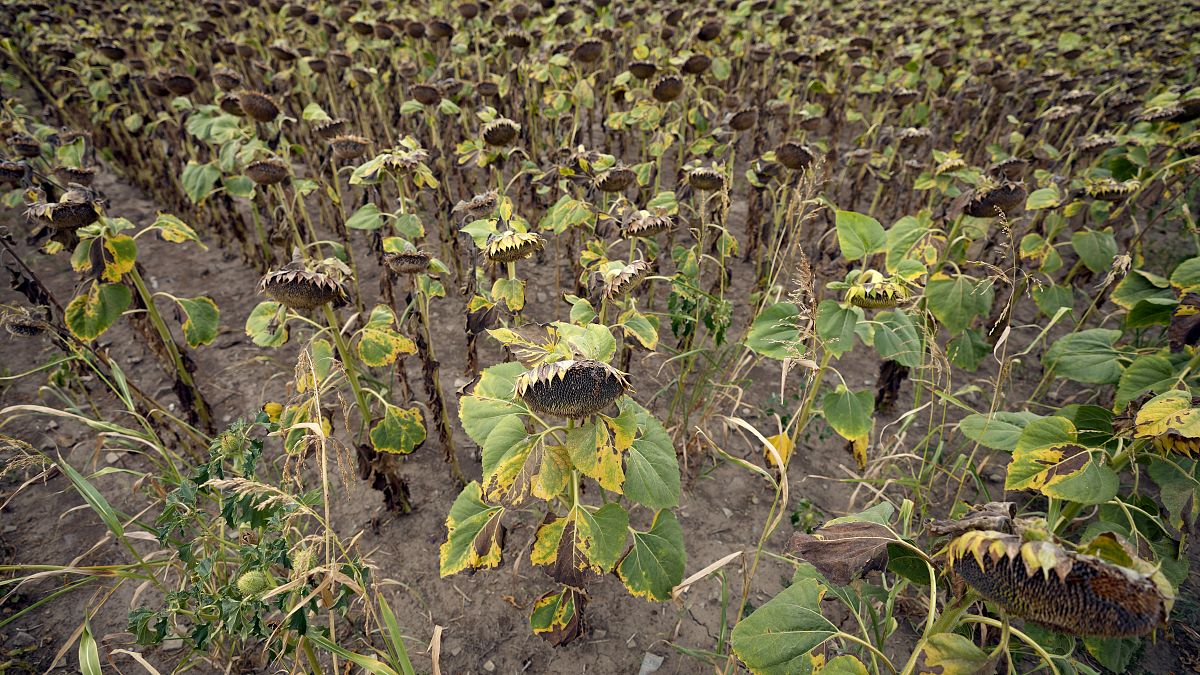Serbian farmers are facing a severe drought for the third consecutive year, leading to early harvesting and significantly lower crop yields. The impact of the drought has been devastating, with corn output expected to be three times lower than usual. Farmers like Tomica Vojnić from Tavankut are struggling as their crops suffer from stunted growth and pest infestations. The water crisis has exacerbated the situation, with many residents’ wells running dry and irrigation impossible. Some farmers are being forced to sell machinery or land to pay off loans, highlighting the dire financial strain caused by the drought.
Despite the hardships faced by farmers, government intervention has been lacking. The Subotica Farmers’ Association has been advocating for assistance from the government, but their pleas have fallen on deaf ears. The provincial government, on the other hand, claims to be taking measures to prevent desertification by investing in the regional hydrological system. The lack of action from the government has only increased the frustration and desperation among farmers who are struggling to survive in the face of the ongoing drought.
As the drought continues to ravage agricultural production in Serbia, the situation is becoming increasingly dire. Farmers are unable to meet their expectations, and the livelihoods of many are at risk. Nataša Kovačev from Euronews Serbia reports that farmers are demanding more support and immediate government intervention to address the crisis. Miroslav Matković from the Subotica Farmers’ Association warns that without action from the state, all farmers will be in trouble. The failure of the government to declare a natural disaster due to drought despite repeated requests only adds to the frustration among farmers who are struggling to survive.
The ongoing drought in Serbia is not just an agricultural crisis but also a political issue. The inability of the government to adequately respond to the needs of farmers has sparked outrage and calls for more robust intervention. The livelihoods of many Serbian farmers are at stake, and without urgent action, the economic and environmental impact of the drought will continue to worsen. The provincial government’s claims of investing in the hydrological system may not be enough to address the immediate needs of farmers who are facing severe hardship.
In the face of the ongoing drought and its devastating consequences, the need for a coordinated and comprehensive response is becoming increasingly urgent. Emergency declarations, financial aid, and infrastructure investments are necessary to support farmers and prevent further damage to the agricultural sector. The future of Serbian farmers hangs in the balance, and without immediate action from the government, the consequences of the drought will be felt for years to come. It is crucial that the government takes decisive steps to address the crisis and provide the necessary support to ensure the survival of Serbian agriculture.










